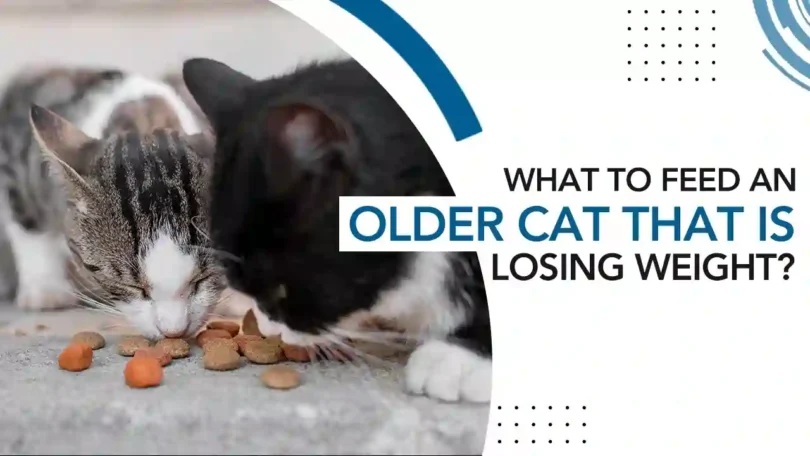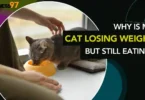If you own a cat, you probably worry about it becoming elderly as well. Even while you cannot stop your cat from aging, you can help them cope by providing the proper nutrition so that they maintain their weight and stay healthy. Here we will discuss what you can feed your older cat that is losing weight. So, read below to know more.

Why Do Older Cats Lose Weight?
It is natural for older cats to lose weight because of changes going on in their bodies due to aging. Just like humans, when cats age, they have a slow metabolism, delayed digestion, and weak dentures which make it difficult for them to chew food properly resulting in reduced appetite. When their food intake is low, their calorie requirements are not fulfilled they ultimately start to lose weight.
So, what should you feed them if they start to lose weight? The answer is given below.
What To Feed An Older Cat That Is Losing Weight?
If your older cat is losing weight because of any reason, then you can feed your cat::
Wet Cat Food
Aging is a natural procedure that affects dental health as well making it difficult for cats to chew foods reducing their appetite. For this reason, you should switch to wet cat food that is softer and more easily chewable for older cats. In this way, they will start to eat again and their calorie requirements will be fulfilled as well helping them maintain or even gain weight rather than lose weight.
Calorie Dense Cat Food
When cats age, they eat less food so it is important that your cat gets more calories and nutrients in whatever food they are eating. For that, you can use calorie-dense food for your cats. In this way, even if your cat is eating less food, it will get greater calories in the same amount of food which will give them enough energy for your daily routine. When their caloric intake exceeds their caloric output, they will stop losing weight and start to gain weight. You should go for high-protein cat food because protein is important for them as they are obligate carnivores and it is more easily digested than carbohydrates in cats with slower mechanisms.
Small Portions of Foods
Older cats have slow metabolism which makes it difficult for them to digest large portions of meals at one time and as a result, they start to eat less food. So, in order to avoid this, you should divide their meals into small portions and increase the meal frequency to 5-6 times rather than giving them 1-2 major meals with greater portions. In this way, they will eat their complete food in multiple meals and get more nutrients retained and absorbed in their body.
Add Healthy Treats
You can also add healthy treats to your cat’s routine in order to make them consume more calories than their regular diet. Select treats that are high in calories, especially coming from protein so that they can easily digest them otherwise older cats can easily get indigestion. The meat snacks are healthy, high in calories, and tasty as well.
Foods Low In Sodium and Phosphorus
It is normal for cats to get kidney problems as they age, and if they get so, you should avoid giving them foods that are high in sodium or phosphorus because it can cause metabolic acidosis. Many cat foods are high in both these ingredients, so you should have a look at the ingredients and their amount before buying your cat’s food.
Supplements
If your cat is still losing weight by eating the right amount of food and treats, then you can add diet supplements to your cat’s routine. You should consult your cat’s vet and ask them to prescribe a good cat dietary supplement that helps in protecting weight loss, stimulates appetite, and is suitable for older cats. The supplements for cats contain good amounts of proteins, vitamins, and minerals.
Conclusion
Older cats can lose weight due to reduced appetite, slowed metabolism, and indigestion due to aging. If your cat is also losing weight then you can help your cat by feeding it wet cat food, giving food that is calorie-dense, dividing whole food into 5-6 meals and small portions, increasing the frequency of meals, adding healthy treats, and by giving them some additional supplements.


